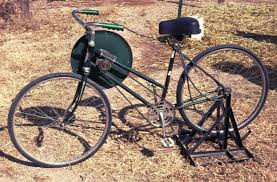

Pictures courtesy of technologyforthepoor.com
Technology For the Poor is a non-profit organization started by Dr. Job Ebenezer. Their mission is to develop, innovate, and disseminate sustainable technologies to the poor all over the world. While Dr. Ebenezer has designed and implemented many different sustainable practices, one of the most notable is his work with urban agriculture and gardens. Using inexpensive containers and suitable soil mix, he has created container gardens in urban areas such as rooftops and unused parking lots in places such as Chicago and Washington D.C. Locally, he has created these gardens at Ascension Lutheran Church, Faith Mission Men’s Shelter, and a soup kitchen in Franklin. To learn more about Technology for the Poor and their work, click here. To read about container gardens and a guide on how to start your own, click here.








